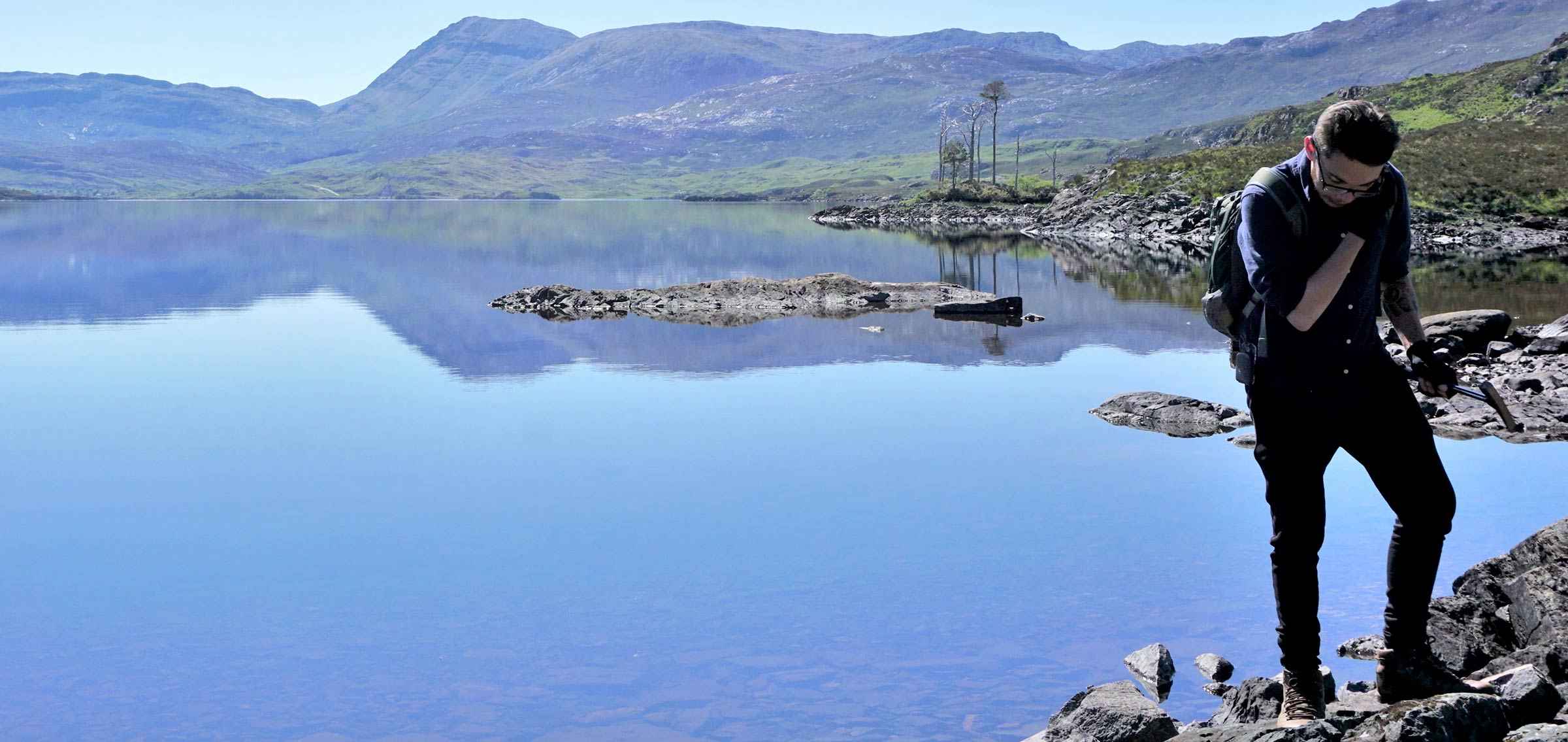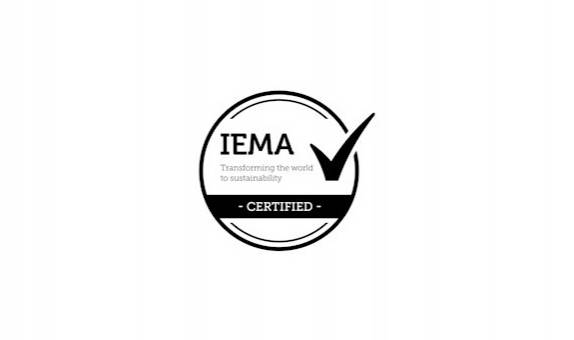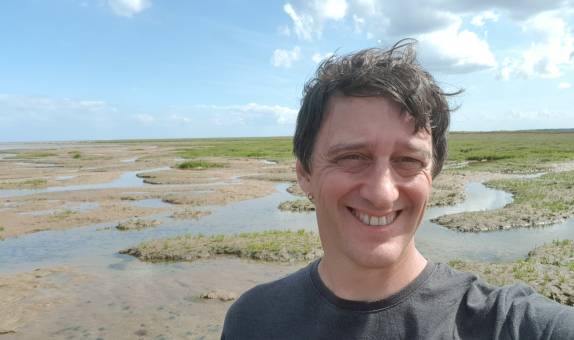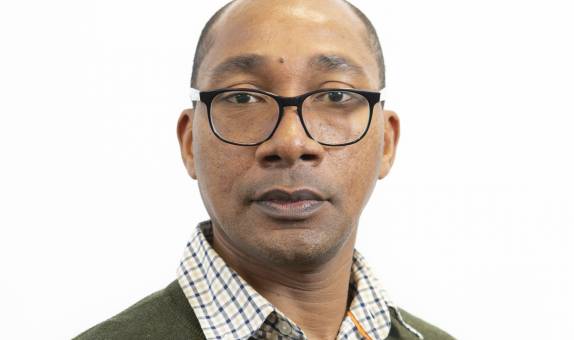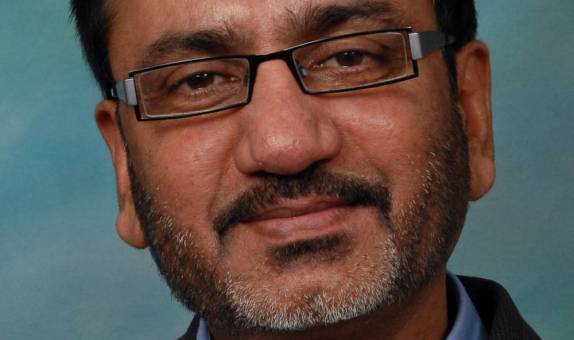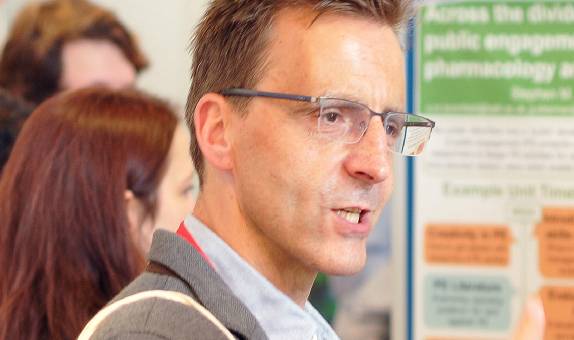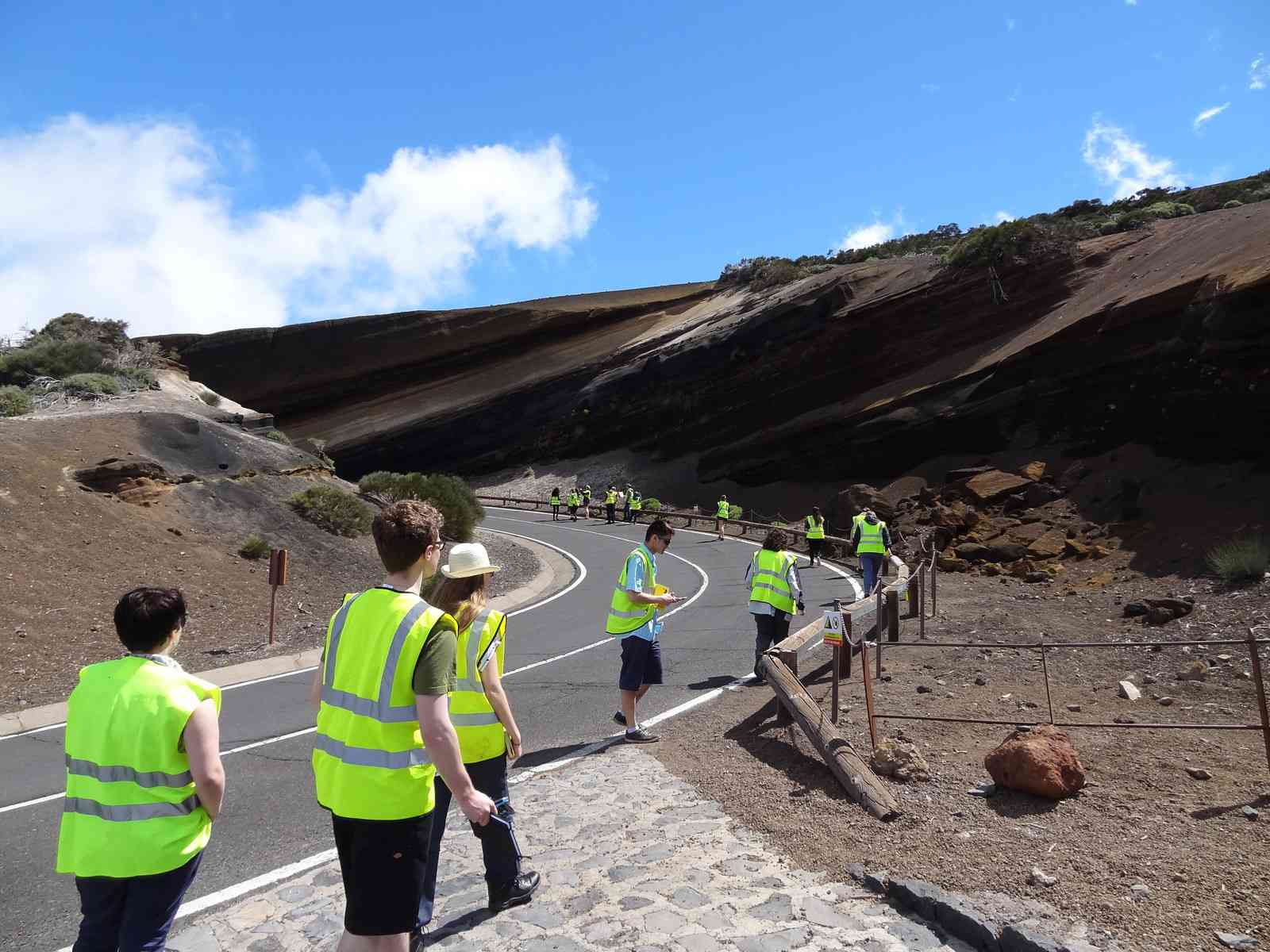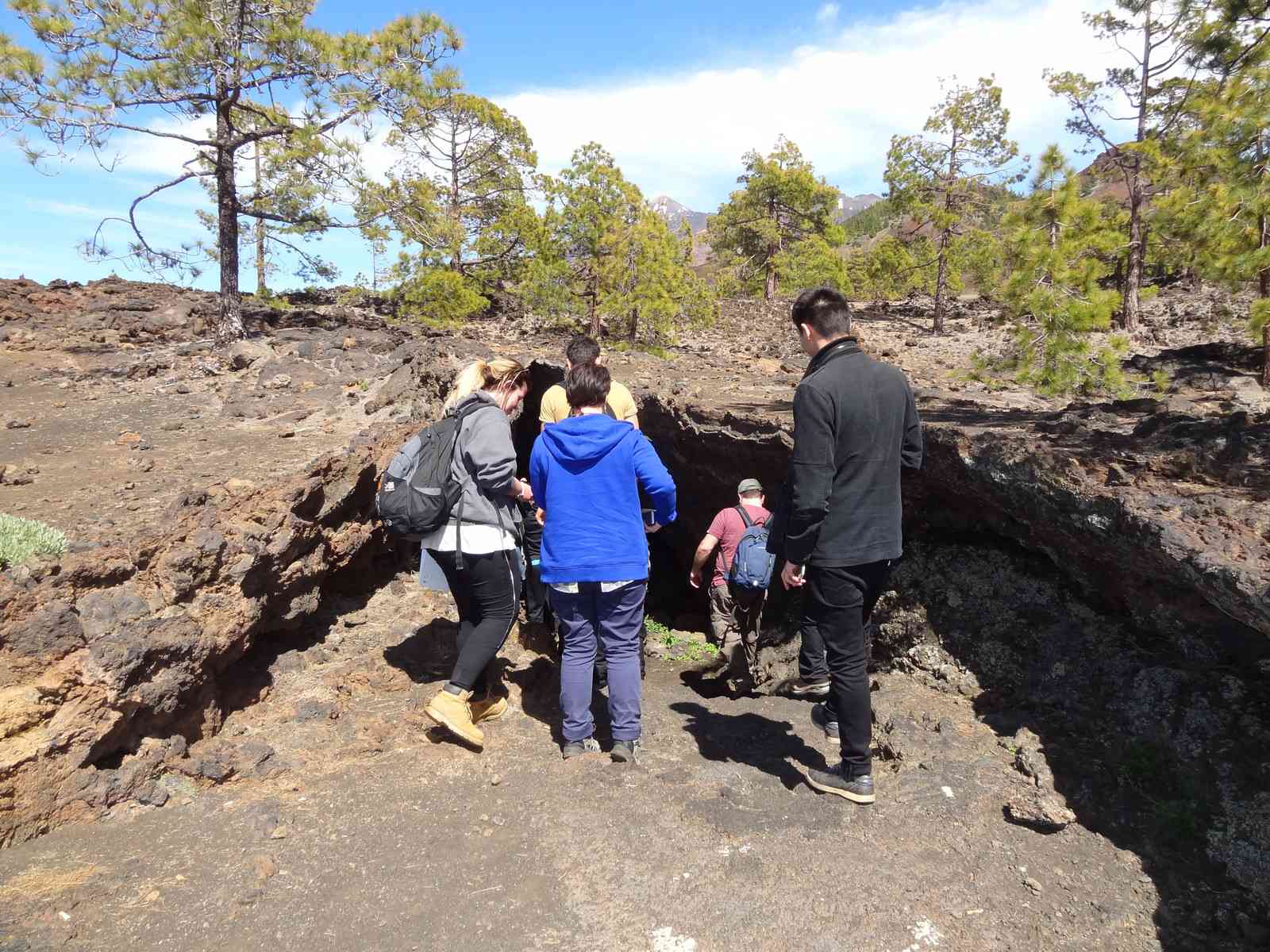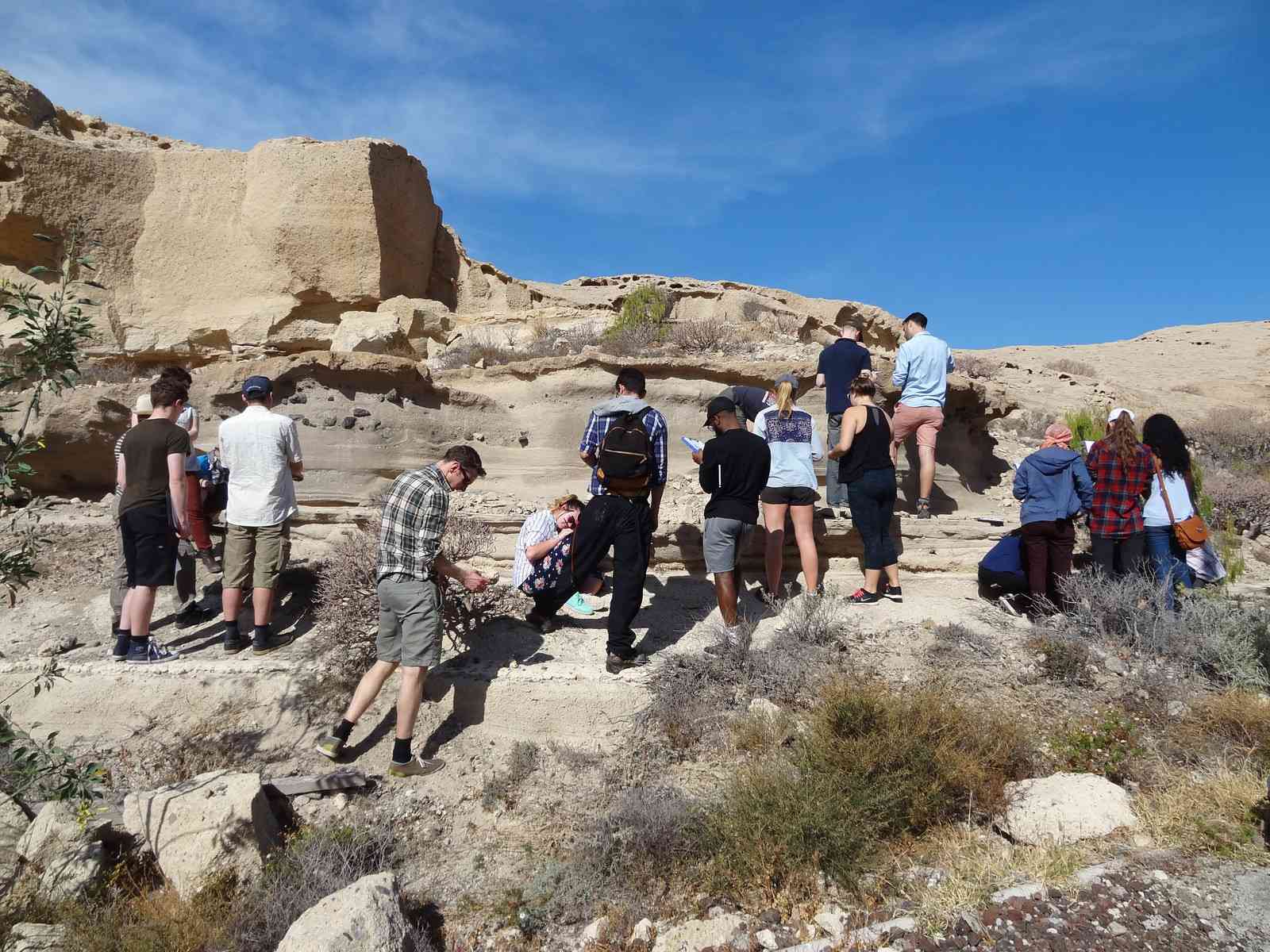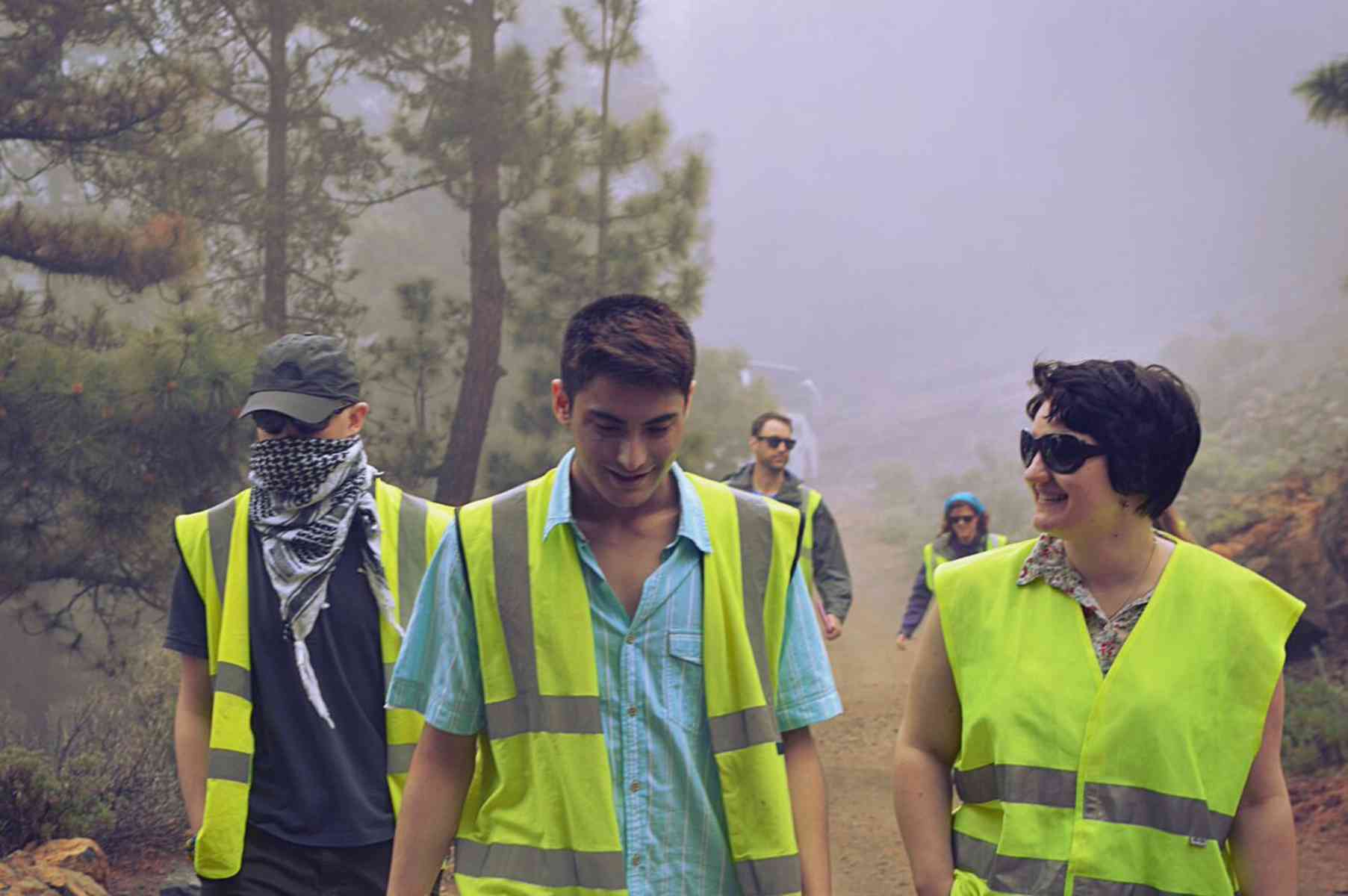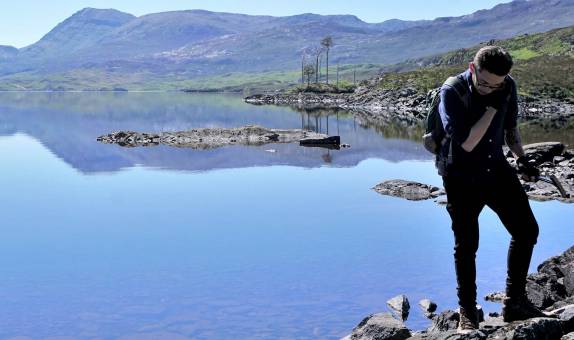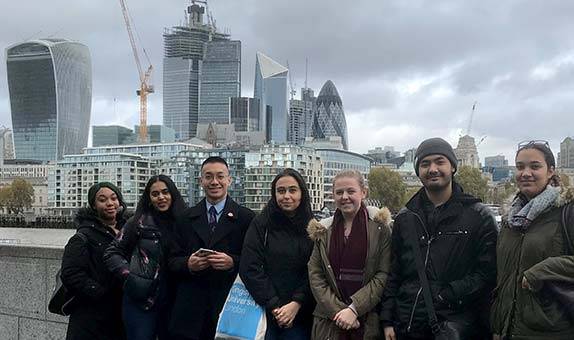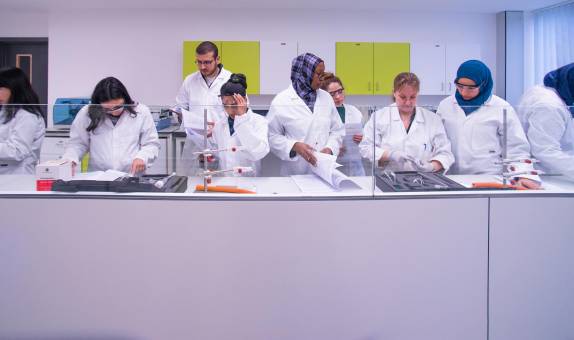Environmental Science BSc (Hons)

Teaching Excellence Framework (TEF) Gold award
Our commitment to high quality teaching has been recognised with a TEF Gold rating. The University has received an overall rating of Gold, as well as securing a Gold award in the framework's two new student experience and student outcomes categories.
Why choose this course?
We're facing huge environmental challenges such as climate change, development pressures, resource use and pollution. Are you interested in working to find sustainable solutions to these challenges? If you are, this degree could be ideal.
You'll gain the skills to investigate, monitor, evaluate and understand environmental systems and to predict and respond to environmental challenges.
The course is highly practical. You'll continually apply your studies to real-life situations through fieldwork in the UK overseas, and through paid work placement opportunities.
| Qualification | Attendance | UCAS code/apply | Year of entry |
|---|---|---|---|
| BSc (Hons) | 3 years full time | F900 | 2024 (Clearing) 2025 |
| BSc (Hons) | 4 years full time including sandwich year | F901 | 2024 (Clearing) 2025 |
| BSc (Hons) | 4 years full time including foundation year | F908 | 2024 (Clearing) 2025 |
| BSc (Hons) | 6 years part time | Apply direct to the University | 2024 (Clearing) 2025 |
| Degree Apprenticeship | 5 years part time | Apply direct to the University | 2024 (Clearing) 2025 |
Please note: Teaching on this course may take place on more than one KU campus.
| Main Location | Penrhyn Road |
Reasons to choose Kingston University
- This course is accredited by the Institute of Environmental Management and Assessment (IEMA).
- There's the opportunity for a year's paid work placement or Study Abroad, or a four-week study visit to an international university under the Turing Scheme. This will give you valuable experience and help prepare you for a career in an environmental role.
- Our careers team offer a programme of events and training sessions which will help you make the best of your career choices.
Accreditation
This course is accredited by the Institute of Environmental Management and Assessment (IEMA). IEMA is the professional body for everyone working in environment and sustainability. This course entitles students to FREE student membership for the duration of the course and on successful completion you qualify for GradIEMA. Graduate membership is a launchpad for future leaders within environment and sustainability and offers a range of benefits to support you throughout your career. You can then "Fast track" to Practitioner Membership.
The degree apprenticeship route is accredited by the IEMA.
What you will study
Year 1
Year 2
Optional sandwich year
Year 3/4
Year 1 introduces key environmental science concepts and methods of scientific investigation. You will learn in a variety of environments including the classroom and laboratory and develop fundamental fieldwork skills. You will study environmental systems and the nature and consequences associated with environmental change. You will investigate how people interact with their environment and examine sustainability challenges. You will learn to make accurate observations of environmental phenomena in the field and the laboratory, and evaluate your findings.
Core modules
Our Dynamic Earth
30 credits
This module introduces key fundamental topics in physical geography, overviewing the various spheres of the Earth, associated processes and interaction. Themes are presented systematically as a cross-section of the Earth's physical structure: geological underpinning, Earth surface processes (introducing geomorphology, the pedosphere and hydrosphere), the atmosphere, and the biosphere.
Interwoven within these topics are lectures on associated environmental hazards, including geophysical hazards (e.g., volcanic eruptions, earthquakes and tsunamis), atmospheric hazards (including hurricanes and tornadoes) and environmental and ecological hazards (including oil spills, and wildfires).
Processes behind these major natural and man-made environmental hazards will be described, with reasons provided for their occurrence and global spatial distribution. Detailed case studies from a variety of geographical regions will help to build a portfolio of examples, enhancing student knowledge of the processes, impacts and means of forecasting and mitigating against hazards becoming disasters.
The module introduces students to the application of environmental and geophysical knowledge and skills to real world challenges and potential discipline-related employment opportunities.
Introduction to Environmental Science
30 credits
This module introduces the basic principles of environmental science, including environmental chemistry, water quality analysis/assessment, environmental pollution, and ecology. The module will investigate basic environmental principles to help students understand how physical and human processes can promote change in environmental systems at a range of spatial and temporal scales.
Students will investigate the impacts of environmental change, understand their significance, and show how this knowledge can be applied to the management of environmental challenges. The importance of a holistic approach to problem solving in the environmental sciences will be introduced along with material on key underpinning scientific disciplines including environmental chemistry and ecology through the investigation of global habitats.
Digital Mapping
15 credits
Maps are tools for visualising spatial information to communicate pattern, processes, and the results of geographical analysis. This module explores the principles and practice of map design and production using Geographical Information System (GIS) software. GIS are introduced, including representations of reality, data types, data management, data quality, and simple analytical operations.
The cartographic design process will be explained including graphic design principles and different modes of delivery (hardcopy/web map/3D) and contrasted to ‘traditional' manual map-making. Legal and ethical issues relating to copyright and attribution of data and media are explained.
Research and Fieldwork Methods
15 credits
This module introduces students to a range of research methods that form the basis of successful investigations in their subject discipline areas, including research design, qualitative and quantitative data collection, and analysis interpretation.
The module, importantly, also introduces fieldwork as a key investigative element of both environmental and geographical study, and the module incorporates the core Level 4 fieldwork, developing both generic fieldwork skills (e.g., pre-field trip reconnaissance using a range of secondary data sources and remote sensing, field safety risk assessments, safety in the field, and ethical considerations) and discipline specific site investigations (e.g., field observations, triangulation for map location and geometrical data collection using compass-clinometers, surveying techniques and GPS location, water quality surveys, analyses of archival data, and questionnaires and interviews).
Developing Academic Skills
15 credits
Students are introduced to their course learning aims and consider their anticipated learning targets from induction to graduation. Students are guided to identify and take ownership of their personal academic journey through the development and application of academic skills aligned to KU Graduate Attributes and their discipline-specific professional body learning outcomes.
Students are tutored in a range of learning to learn techniques and are introduced to assessment for learning and the role of feedback, reflection and feedforward as an integrated part of their learning journey. This will be supported through active engagement in the KU Navigate Programme enabling students to understand and begin to develop a design thinking approach to Future Skills development.
Sustainability for Professional Practice
15 credits
This module will explore the global environmental, economic, and social problems that society faces and encourage students to find and create sustainable innovative solutions.
The students will be introduced to the complex societal problems and current challenges associated with social justice, cultural inequalities, ethics, and climate change emergencies, this will enable them to reflect on the UN Guiding Principles on Business and Human Rights. The students will be immersed in a culture of education that provides knowledge, values, attitudes, and skills and encourages them to think about possible solutions seeking to balance economic, environmental, and social objectives set by the United Nations Sustainable Development Goals (UNSDGs), and the challenges in achieving those goals.
Students will be able to develop knowledge, values, attitudes, and skills associated with systems thinking and integrated problem-solving within the context of environmental systems and processes and the built environment. This will encourage students to critically address ways to mitigate and solve complex global societal problems addressed by the UNSDGs.
Working in teams, students will explore, and debate: to evaluate the interconnectivity between the United Nations Sustainable Development Goals (UNSDGs), collaborate and co-design practical and equitable strategic solutions to Net Zero carbon (positive), and evaluate sustainability-related global challenges (e.g., the climate emergency) while developing critical thinking and self-awareness
Year 2 builds knowledge of environmental systems and develops your analytical science skills portfolio through the collection, analysis and interpretation of environmental data. You will develop your practical skills such as environmental project management, cartography and Geographic Information Science. You will also learn to design and manage an environmental research project in the UK and develop your fieldwork skills with a European field trip.
Core modules
Rivers, Oceans and the Atmosphere
30 credits
This module explores the physical science of Earth's hydrosphere and the atmosphere, key processes and principles, and associated hazards. Through a sculpted narrative, the module curriculum will take students on an investigative journey to explore land, ocean and atmosphere environments and their interactions, with a persistent focus on the impact of climate change on these systems.
The narrative will follow the water cycle, starting with precipitation on land and a study of drainage basins, followed by investigations of rivers, estuaries and coasts, then on to the ocean and ocean circulation, and finally the atmosphere. Hydrological and sedimentological processes will be considered, following a source to sink approach.
A variety of hydrospheric and atmospheric hazards will be considered throughout the module, including riverine and coastal flooding, sea-level rise, and severe weather hazards associated with ENSO, the Indian Ocean Dipole and the SE Asian Monsoon System. Fieldwork, GIS and remote sensing practicals will be integral to this module, providing real-world skills and training relevant to a wide variety of environmental science, hazards and geography careers.
Principles of Ecology and Conservation
15 credits
Ecological concepts are explained using a hierarchical approach: population, community and ecosystem levels of ecology are explored, highlighting the interactions between man and nature. A research-led approach is used to emphasise the models by which ecologists attempt to explain complex biological systems. Core factual material is provided using keynote lectures to explain concepts. The practical and fieldwork elements are designed to develop observing, recording, data analysis, data interpretation and presentation skills.
Contaminated Land, Assessment and Remediation
15 credits
This module has three key components. First, an understanding of the fundamental principles of soil science is developed whereby the various soil properties and processes, including storage/retention and transport of water and chemicals in soil, are explained. This provides a good support to developing an understanding of soil and hydrological interactions with soil nutrients and contaminants. This knowledge of soil and water environmental interaction forms the essential base for introducing and explaining soil pollution, including the impact of pollutants on environmental systems (soil, water, plants and air) and human health. It also discusses pollution mitigation and control/remediation strategies.
Advanced Research Methods and Statistics
30 credits
Students will design, manage and execute an environmental science research project in a ‘real-life' field-based setting. Students are tutored in aspects of research design: defining research questions, research philosophy and appropriate methodologies. Students learn practical aspects of research design such as logistical considerations of time and budget limitations, as well as data archiving. Students will be trained in quantitative and qualitative data analysis. Students will learn how to collect, manipulate, and interpret statistical environmental and geographical data and apply this learning to their project-based investigations.
Understanding our World with GIS
15 credits
With the increasing focus on data science and big data, data literacy and the ability to develop and implement analytical workflows have become essential transferrable skills. This module is concerned with how to obtain, process, integrate, analyse, visualise, and analyse geographical data within GIS software to discover and quantify spatial patterns. It offers the means to critically evaluate data, analytical approaches, and the outcomes in relation to the principles of information and cartographic design.
The principles and methods of digital data collection and post-processing are introduced (e.g., GPS, mobile apps, aerial and space-based survey, secondary data, APIs). Students will learn how to apply exploratory and basic analytical techniques (e.g., buffer, spatial join, overlay, surface and network analysis) to discover pattern. They are introduced to and gain practical experience of the relational database, and network and surface data models and their analytical use.
Project Management
15 credits
The optional sandwich year between Years 2 and 3 includes a work placement or international exchange. The work placement gives an opportunity for paid work and valuable experience in an environmental field. We will keep in touch with you throughout your placement, ensuring the skills and training you receive translate effectively into your studies and career aspirations.
Final year modules build on your environmental knowledge and skills delivered in Year 2, enabling you to apply your knowledge to investigate contemporary environmental science challenges. Your final year independent research project will reflect your personal environmental interests and help you develop your employability skills. You can also choose to apply your knowledge and skills in and overseas setting - currently in South Africa.
Core modules
Research Project
30 credits
This module provides students with experiences in the design, preparation and execution of an independent and supervised programme of research.
The module guides students to employ reflective learning techniques and to develop a variety of level-appropriate employability skills by engaging with their research project as academic research with commercial, policy or political value which requires effective dissemination and communication to a range of suitable audiences. Employability skills developments are integral to the Research Project module.
The specific nature of the research project chosen allows the students to target specific skills they wish to develop in their learning pathway and the project supervisors will work closely with the students to identify and articulate these skills and relate these to Future Skills.
Land and Water Resources Management
30 credits
This module examines the relationship between land and water management, global challenges associated with the management of land and water, and sustainable options to seek their resolution.
The module will develop an understanding and critical evaluation of these challenges from several perspectives through the systematic investigation of land-use practices, the applications of soil science and linking practices to processes and patterns of land degradation, the interface between land management and water management, global concerns for water security, land use impacts on the wider environment, including climate, physical and socio-political drivers and an examination of the regional land-water management issues.
The module will highlight a range of employability skills and challenge students to identify and value the transferability of these skills to the workplace. These will include assessment for learning activities that will develop fieldwork skills, problem-solving and the communication of environmental knowledge.
The Science of Climate Change
15 credits
This module explores the science of climate change through an in-depth exploration of the components of the climate system and an examination of climate change indicators such as sea-level change and ocean acidification. The influence of human activities that contribute to climate change, such as greenhouse gas emissions and deforestation will be explored and future climate models and scenarios will be evaluated.
The module will highlight how recent climate change is predominantly due to anthropogenic forcing rather than natural climate drivers. Students will learn to critically evaluate and discuss models of future climate change and will produce their own climate projections for the UK based on real data.
The fieldwork programme will also provide students with an opportunity to enhance their understanding of climate change by seeing examples of past climate change in the local palaeo and geomorphic record. Examination of the palaeo record of past climate change will give context to the evaluation of future projected climate change scenarios.
Conservation, Theory and Practice
15 credits
The importance of historical and contemporary land use practices in shaping current biotic communities is discussed. Current issues in biodiversity conservation and biodiversity patterns influenced by anthropogenic climate change are explored through a lecture and seminar programme. Fieldwork supports the lectures and assignments which are designed to introduce students to important aspects of practical conservation work, such as global strategies for mitigating effects of biodiversity loss, writing funding bids, species conservation strategies, and communicating to non-specialists/decision makers.
Applying Professional Skills
15 credits
Students will demonstrate the ability to apply their developing professional skills competencies in their chosen area and will ensure they have a broad understanding of the business environment in which professional activities are undertaken. The module will develop the student's technical, management and interpersonal skills required to perform in a team environment and prepare the students for employment and entrepreneurship.
Students will participate in Kingston University's Bright Ideas competition where they will work together as a team to develop a business idea of their choice. To do this they will need to interact with relevant stakeholders outside the University.
Students will be guided to interact with professional and learning communities beyond the university and reflect on these interactions. This may include participation in co-curricular events such as subject-specific and career development events (e.g. talks, workshops, speed interviews), networking opportunities offered by the subject-specific professional bodies, exploring pathways to professional chartership/membership, leveraging interactions with professionals in the development of the final year research project and, reflecting on the co-benefits of these interactions.
Optional modules
Climate Change Hazards, Resilience and Solutions
15 credits
This module tackles the key issues relating to climate change in the three main subject areas of science, policy and society. The module presents a series of thematic taught sessions (classroom and field-based) overviewing: climate-related hazards and disasters; how climate change is impacting the level of risk associated with various hazards – for example, heatwaves, droughts and wildfires, flooding events, and geophysical hazards; and the ways in which impacts and risk associated with climate change can be lessened through mitigation and adaptation.
Human activities in developed and industrialised nations in regions such as Europe, North America and East Asia have largely caused the changes in atmospheric composition and the current climate crisis; but it is poorer less developed nations (especially in Africa, south-east Asia and the Pacific islands) that are often most at risk to the increase in climate-related hazards. Students will learn how to examine, interpret and evaluate international, national and local policies and practices responding to climate change, and have the opportunity to engage in role-play debates and oral presentations.
The production of a detailed and coherent stakeholder report will provide real-world learning skills relevant to the environmental sector and tackling climate change. The fieldwork programme will provide the students with the opportunity to enhance their understanding of climate-related societal issues and consider current case studies of adaptation and mitigation.
Solving Real World Data with GIS
15 credits
This module offers in-depth knowledge as well as hands-on skills for a series of spatial analytical and modelling approaches that can be used for solving real-world problems.
At the heart of this module will be the notion of spatial understanding of data science. This relates to the fundamental notion in geography and environmental science whereby spatial patterns and spatial inequity are rife in the real world (e.g., high property price in accessible and branded areas; persistence of crime hotspots; specific ecological habitats that exist for particular species; regions prone to a specific natural hazard such as hurricanes).
Offering solutions to these various challenges require a systematic and quantitative appreciation as well as suitable interpretation of the data, and this module is designed to offer the means to achieve this through a series of spatial analytical and spatial statistical methods, including point pattern analysis, spatial interpolation and spatial regression.
Foundation year
If you would like to study one of our science degrees at Kingston University but are not yet ready to join the first year of a BSc (Hons) course, you can include an extra foundation year within your chosen degree. Please see the science foundation year course page for details of modules.
Future Skills
Knowledge to give you the edge
Embedded within every course curriculum and throughout the whole Kingston experience, Future Skills will play a role in shaping you to become a future-proof graduate, providing you with the skills most valued by employers such as problem-solving, digital competency, and adaptability.
As you progress through your degree, you'll learn to navigate, explore and apply these graduate skills, learning to demonstrate and articulate to employers how future skills give you the edge.
At Kingston University, we're not just keeping up with change, we're creating it.

Entry requirements
If you would like to join us through Clearing 2024, please call our Clearing line on 0800 0483 334 (or +44 020 8328 1149 if you are calling from outside the UK) and speak to our friendly and knowledgeable hotliners who will be able to provide information on available courses and will guide you through your options.
Please note the entry requirements listed below are for 2025 entry only.
Teaching and assessment
Scheduled learning and teaching on this course includes timetabled activities including lectures, seminars and small group tutorials.
It may also include placements, project work, workshops, workshops in computer labs, and laboratory workshops.
Who teaches this course
The course is taught by the Department of Geography, Geology and the Environment. Staff have a wide range of experience across research and industry and continue to practice and research at the cutting edge of their discipline. This ensures that our courses are current and industry informed ensuring you get the most relevant and up-to-date education possible.
The Department has invested substantially in the development of laboratories for teaching and research into subjects such as environmental monitoring, geology, geochemistry, mapping / GIS / computing facilities, and specialist instrumentation laboratories (e.g. nuclear metrology; microscopy; laser Raman spectroscopy; 3D mapping).
Postgraduate students may run or assist in lab sessions and may also contribute to the teaching of seminars under the supervision of the module leader.
Facilities
There is a wide range of facilities for practical work at our Penrhyn Road campus, where this course is based. You will have access to a modern environment with the latest equipment, including:
- laboratories dedicated to environmental science learning and research
- the £9.8 million Eadweard Muybridge building with state-of-the-art laboratories
- computing laboratories and a team of IT technicians to offer assistance
- the award-winning Town House, with a well-stocked library that boasts an impressive collection of texts, journals and online e-books/journals
- excellent social spaces, plus a large, fully equipped gym and fitness centre
- a fully integrated virtual learning environment (Canvas) so you can learn and interact with others on your course 24/7
Course fees and funding
Additional costs
Depending on the programme of study, there may be extra costs that are not covered by tuition fees which students will need to consider when planning their studies. Tuition fees cover the cost of your teaching, assessment and operating University facilities such as the library, access to shared IT equipment and other support services. Accommodation and living costs are not included in our fees.
Where a course has additional expenses, we make every effort to highlight them. These may include optional field trips, materials (e.g. art, design, engineering), security checks such as DBS, uniforms, specialist clothing or professional memberships.
After you graduate
Careers and progression
We have excellent links with industry, business and environmental organisations. Graduates work as environmental consultants, analysts or technicians with local authorities, in waste management, wildlife conservation, and in teaching and administrative roles. Many progress to our MSc in Environmental Management.
What our students say
What our graduates say
Check out what our graduates have gone on to do and how studying at Kingston helped them achieve their goals.
Afua Yeboa-Henaku
Environmental Science graduate Afua Yeboa-Henaku talks about her time studying at Kingston University, and her current role as a Sustainable Behaviour Assistant at City University.
Sean Tuck
Environmental Science graduate Sean Tuck talks about his time studying at Kingston University, and his PhD at Oxford University.
Field trips
Fieldwork is an important and integral part of environment-based degrees. At Kingston we place a strong emphasis on real world learning, in the natural classroom outdoors.
Below are examples of the main residential trips we run. During Years 2 and 3, many of the modules also include other trips and excursions. You might visit:
- Ashtead Common, a national nature reserve, close to Kingston
- The nearby North Downs
- The Sussex coast
- The River Thames in central London and local streams such as the Hogsmill River
- The Thames Estuary, Rochester and the Medway Estuary, Northey Island in the Blackwater Estuary, where you may for example investigate current and future flood risk and the adaptation and mitigation strategies that can increase climate resilience
- The River Thames floodplain
View our image gallery for an idea of what your fieldwork might involve.
Dr Stuart Downward talks about what students can expect from the field trips.
Year 1: Southern UK Based
In the first year you will do a UK-based, week-long trip to an area such as Dorset. Here you will:
- learn and develop a variety of environmental fieldwork skills;
- consider the ways in which we collect and analyse data to understand social and environmental issues;
- study a range of topics, such as water resources, tourism and natural capital; coastal hazards and climate change;
- complete work suggested by lectures and individual projects; and
- research controversial environmental issues.
Year 2: European based
In Year 2, you will participate in an overseas field trip to a location such as Tenerife. This gives you the chance to study an environment very different to that of the UK. The Tenerife environment is incredibly diverse, with huge contrasts in climate, soil types and ecology. You will focus on the island ecological diversity and develop a range of ecological techniques and design and manage a group-based ecological project.
Year 3: International fieldwork options
In Year 3, students have opportunities to engage in optional fieldwork overseas during the summer. This is part funded by the Turing Scheme (UK government programme) and by the university. Recent summer fieldwork destinations include Almeria in Spain, Bandung in Indonesia and Chesapeake Bay in the USA.
Work placement year
How you can work in industry during your course
Placements:
- provide work experience that is relevant to your course and future career
- improve your chances of graduating with a higher-grade degree
- enhance your CV
- lead to a graduate job
- enable you to earn a year's salary whilst studying (the vast majority of placements are paid)
- help you to select your final-year project.
"To be successful, tomorrow's leaders will need to be far more rounded individuals than ever before. They will collaborate in pursuit of shared goals. They will guide, challenge and support...They will have an appetite for change and a hunger for continuous improvement, and they will have an ethos of learning and development..." Jeremy Darroch, Former Chief Executive, Sky.
"Doing a placement year effectively gives you one foot in the door of a future job and to stand out from the crowd... as well as enhancing my CV... and future interviews. It's a great motivator to be successful in my studies as it only serves to open even more doors and gain more skills." Placement student at Jagex Games Studios Ltd.
There is a lot of support available for students looking to secure a placement (e.g. a jobs board with placement vacancies, help with writing CVs and mock interviews). Getting a placement and passing the placement year are ultimately the student's responsibility.
Examples of placements
Placements can be with large multinational companies, international companies, local companies and small start-ups; offering a diverse range of posts. Here are some examples of employers and roles:
| Construction-based placement employers | Construction-based placement roles |
|---|---|
| RG Group Multiplex Costain Willmott Dixon Fluor |
Assistant site manager Assistant trades package manager Assistant logistics manager Health and safety officer Construction engineer |
| Science-based placement employers | Science-based placement roles |
| Reckitt and Benckiser GSK Drug Control Centre Minton Treharne and Davies Ltd Various local and international hospitals |
Bioanalytical sciences Lab assistant Pharmacy assistant Sports coach |
| Engineering-based placement employers | Engineering-based placement roles |
| Airbus BAM Nuttall Nissan Bosch Wozair |
Analysis of aircraft structure Construction resources specialist Site engineer assistant |
| Computing and IS-based placement employers | Computing and IS-based placement roles |
| Disney Sony Interactive Entertainment Europe IBM McKinsey Intel |
Database coordinator Software developer Website developer App developer |
| Mathematics-based placement employers | Mathematics-based placement roles |
| Lloyds Banking Group AXA Allianz PAU Education, Spain |
Analyst Investment solutions Research analyst Accounts assistant |
Find out about studying this course part-time
The part-time course is half the workload of the full-time course, taking six years to complete rather than three. The course is flexible so you can switch to full-time study in Years 2 or 3 if you wish.
Before the course begins, you will meet with a tutor to discuss your time commitments. The course leaders will then try to let you know the timetable of lectures and seminar groups as soon as possible. On average, part-time students need to allow 10 hours a week to attend lectures and seminars, plus a further 10 to 15 hours for independent study, but this does vary.
Key information set
The scrolling banner(s) below display some key factual data about this course (including different course combinations or delivery modes of this course where relevant).
Course changes and regulations
The information on this page reflects the currently intended course structure and module details. To improve your student experience and the quality of your degree, we may review and change the material information of this course. Course changes explained.
Programme Specifications for the course are published ahead of each academic year.
Regulations governing this course can be found on our website.
